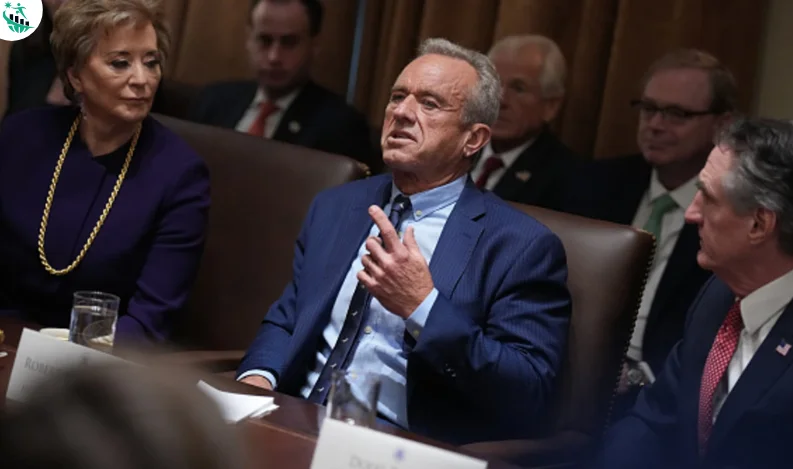
RFK Jr. Slashes Minority Health Offices Across HHS, Raising Concerns Over Growing Health Disparities
In a sweeping overhaul of the Department of Health and Human Services (HHS), Secretary Robert F. Kennedy Jr. has implemented significant cuts to divisions critical to reducing health disparities in the United States. Sources familiar with the matter have confirmed that at least seven minority health offices across HHS have been severely reduced, with many offices losing most or all of their staff, including key leadership positions.
Among the affected offices are the HHS Office of Minority Health and the National Institute on Minority Health and Health Disparities (NIMHD), both of which play crucial roles in promoting health equity and improving outcomes for racial and ethnic minority groups. Other offices within agencies such as the Centers for Disease Control and Prevention (CDC), the Food and Drug Administration (FDA), the Centers for Medicare & Medicaid Services (CMS), and the Substance Abuse and Mental Health Services Administration (SAMHSA) have also experienced significant reductions.
Health Experts Express Concern
Health policy experts have expressed alarm over the potential long-term effects of these cuts, which could exacerbate existing health disparities. "It will have negative health impacts, obviously, for groups that they’re focused on, so racial and ethnic minorities, but I think what gets missed in the story is it ultimately impacts all of us, no matter what your background is," said Dr. Stephanie Ettinger De Cuba, a research professor at Boston University. "Decimating or cutting staff from these offices ultimately makes it worse for everyone."
The cuts come at a time when health disparities remain a significant challenge in the U.S. Minority groups, rural residents, low-income communities, and individuals with disabilities often face higher rates of chronic disease, lower life expectancy, and limited access to care. The COVID-19 pandemic highlighted and deepened these disparities, revealing the impact of systemic issues such as poverty and racism.
Impact on Data and Research
Experts stress that data and research are essential for identifying and addressing health disparities. With the recent staff reductions, the U.S. risks losing critical data that could help pinpoint where disparities exist and guide targeted public health interventions. Samantha Artiga, director of racial equity and health policy at KFF, emphasized that without focused research and data collection, these disparities may remain invisible and unaddressed.
The National Institutes of Health (NIH) and NIMHD, for example, are pivotal in funding research and developing programs to tackle health disparities. With cuts to these agencies, the future of health equity programs, including those aimed at increasing preventive care and reducing chronic disease, remains uncertain.
Financial and Health System Impact
The cuts also raise concerns about the long-term economic costs associated with ignoring health disparities. A 2023 study funded by NIMHD found that racial and ethnic health disparities cost the U.S. economy $451 billion in 2018 alone. Experts argue that by addressing these disparities, the U.S. could not only improve health outcomes for underserved populations but also alleviate the financial burden on the healthcare system.
A New HHS Agency and Future Uncertainty
As part of the broader restructuring, Kennedy is creating a new agency within HHS, the Administration for a Healthy America, which will consolidate several offices, including those focused on minority health. However, this new agency is not yet fully formed, and the proposed budget cuts, which could slash HHS funding by a third, would require congressional approval.
The future of many health equity initiatives remains uncertain. Offices like the CDC’s Office of Minority Health, the FDA’s Office of Minority Health and Health Equity, and the CMS Office of Minority Health have all seen significant staff cuts. Some offices, including those focused on mental health and substance abuse, have also been severely impacted, with staff reductions undermining efforts to ensure equitable distribution of resources and services.
Calls for Accountability and Efficiency
While Kennedy has framed the cuts as an effort to make HHS more “responsive and efficient,” experts argue that targeting minority health offices could achieve the opposite. Nathan Boucher, a professor at Duke University, explained that these offices help identify critical health issues and ensure that taxpayer dollars are used efficiently to address public health problems. "I actually think it’s an efficient argument to be able to have these minority health offices because it allows you to identify and target some real problem areas," he said.
Looking Ahead
The full consequences of these cuts may not be immediately apparent, but experts warn that the loss of resources dedicated to addressing health disparities could result in long-term harm to public health. As the nation grapples with the effects of systemic inequality and insufficient healthcare access, the reduction of programs focused on eliminating health disparities could set back progress made in recent years.



Recent Comments:
No comments yet.